Keynotes
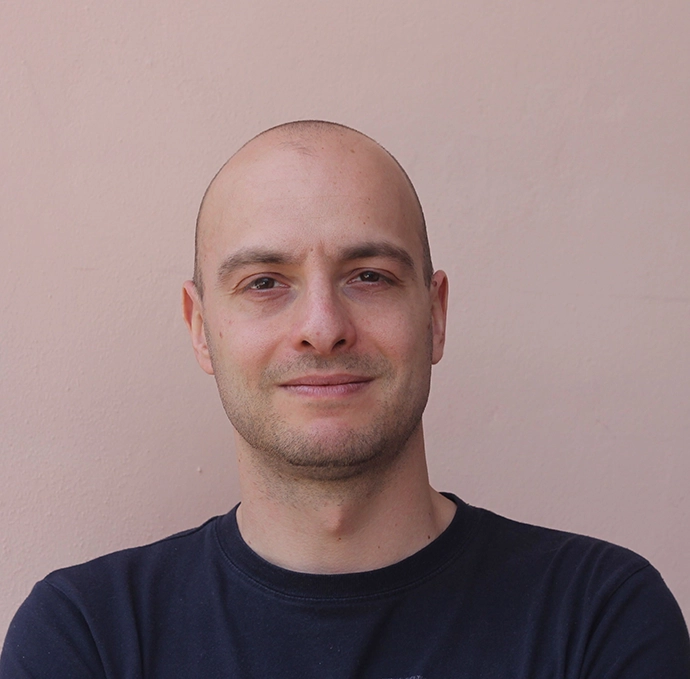
Alessandro Margara
Politecnico di Milano, Italy
Keynote title: What the history of event-based systems tells you about your PhD
Abstract
Event-based systems have become pervasive. Ideas that have been presented and discussed over the years in DEBS are widely adopted in different systems that serve diverse applicative domains. They influenced (and were influenced by) research in various fields of computer science, including research on database systems, programming languages, and knowledge representation. In this talk, I will overview the evolution of event-based systems over the years to show how rapidly a research field can evolve and how individual research studies can contribute to guide this evolution.
Biography
Alessandro Margara is an Associate Professor at Politecnico di Milano. He obtained his PhD from Politecnico di Milano and worked as a post-doctoral researcher at the Vrije Universiteit (VU) Amsterdam and Università della Svizzera italiana (USI). Alessandro's research interests are in the area of software engineering and distributed systems. His research focuses on defining abstractions and building systems to simplify the design, development, and operation of complex distributed applications. Alessandro is a long-term member of the DEBS community and a regular member of the DEBS Program Committee. He was DEBS 2021 General Co-Chair. He received the DEBS 2014 Best Paper Award, DEBS 2020 Test of Time Award, and the DEBS 2022 Grand Challenge Performance Award.

Paweł T. Wojciechowski
Poznan University of Technology, Poland
Keynote title: A selective and biased choice of techniques for building a distributed data store
Abstract
Single-machine data stores cannot support the scale and ubiquity of data today. The Internet applications and services must process a huge number of concurrent requests and events per second. So, they use distributed (or replicated) data stores which store and process data on multiple machines, offering key advantages in performance, scalability, and reliability. The purpose of the talk is to present a selective and biased choice of techniques and results which can be used for building an efficient distributed data store. Biased, because I only present solutions and results developed within a research project that I did with my PhD students. Selective, because an exhaustive description would be too exhausting to fit into a single talk. Therefore I will be discussing in detail just the design of our novel database index for key-value data store systems, and only skim our other contributions that are directly related to distributed systems. The index, called Jiffy, has been designed with performance and scalability in mind. Therefore it has been designed as a lock-free concurrent data structure, which can dynamically adapt to the changing workload. It achieves superior performance despite built-in atomic operations (batch updates, snapshots, and range scans). During the talk I will be presenting Jiffy's architecture, the algorithms for inserting and looking up the key-value pairs, and the operations used for resizing the data structure dynamically. The other contributions of our project include: efficient support for replica state recovery after failures, either by extending the classic Paxos consensus algorithm, or through the use of persistent memory, and some surprising theoretical results which are applicable to distributed data store systems that compromise consistency in favour of high availability and speed, but also support operations ensuring strong consistency (which requires consensus among replicas).
Biography
Paweł T. Wojciechowski received the Habilitation degree from Poznan University of Technology, Poland, in 2008, and the Ph.D. degree in computer science from the University of Cambridge, in 2000. He was a postdoctoral researcher with the School of Computer and Communication Sciences, École Polytechnique Fédérale de Lausanne (EPFL), Switzerland, from 2001 to 2005, and with the University of Cambridge, in 2001. He is currently an Associate Professor with the Institute of Computing Science, Poznan University of Technology, where he leads the Concurrent Systems group. His research interests span topics in concurrency, distributed computing, and programming languages. He has published his research in leading journals, such as IEEE Transactions on Parallel and Distributed Systems, IEEE Transactions on Dependable and Secure Computing, Journal of Parallel and Distributed Computing, Distributed Computing, ACM Transactions on Programming Languages and Systems, and International Journal of Parallel Programming.
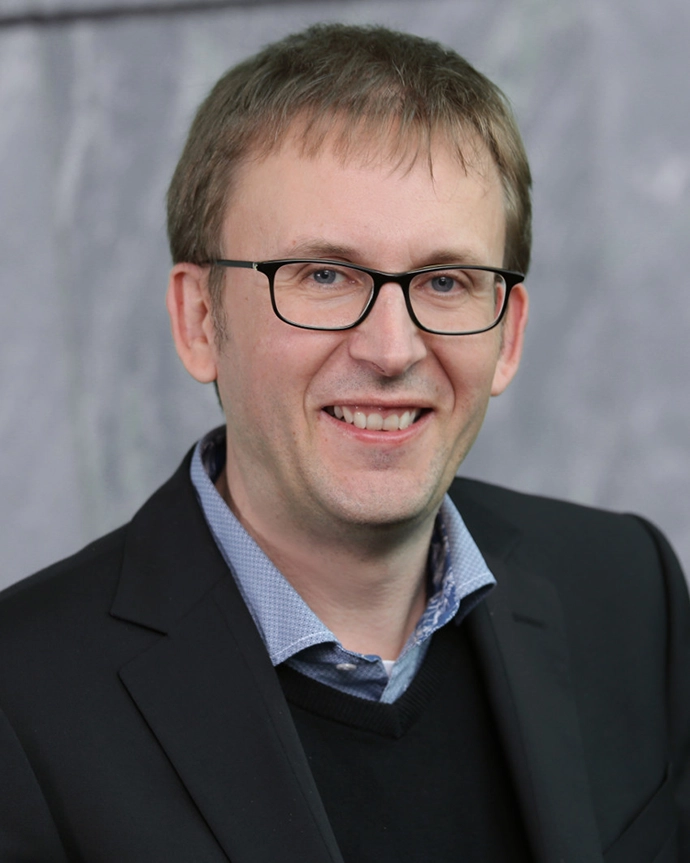
Boris Koldehofe
Technical University of Ilmenau, Germany
Keynote title: Accelerating the performance of distributed stream processing systems with in-network computing
Abstract
The performance of stream processing systems heavily relies on the ability to move data between stream processing operators efficiently. The softwarization of computer networks offers a huge potential for distributed systems to accelerate the performance of distributed stream processing operators by minimizing data movements and accelerating the execution of operators. Yet, using methods of in-network computing to accelerate middleware services like stream processing systems often conflict with the famous end-to-end principle. Therefore, in this talk, we will focus on abstractions that allow executing computations on heterogeneous resources of network elements and discuss how these abstractions can support stream processing systems. In particular, we highlight and introduce recent findings in distributed data stream processing, network function virtualization, and real-time packet streaming. We show how different paradigms and programming models support accelerating performance by better utilizing the capabilities of in-network computing elements. Moreover, we give an outlook on how future developments can change how distributed computing can be adaptively performed over networked infrastructures.
Biography
Boris Koldehofe is a Full Professor at the Technical University of Ilmenau, leading the Distributed and Operating Systems Group at the department of Computer Science and Automation. He received a Ph.D. degree from Chalmers University of Technology, Gothenburg, Sweden, in 2005. Since then, he has worked in the field of distributed and network-centric computing systems at the EPFL (PostDoc), the University of Stuttgart, the Technical University of Darmstadt (Senior researcher and lecturer), and the University of Groningen (Full professor). He has a long-standing interest in event-based and stream processing systems covering issues related to scalability, performance, mobility, reliability and security. His current research focuses complementary on software-defined networks, adaptive communication middleware and distributed in-network computing. He has contributed to more than 100 scientific publications in major journals, e.g., the IEEE Transactions on Networking (ToN) and the IEEE Transactions on Parallel and Distributed Systems, and conferences, e.g., the ACM/USENIX Middleware and the ACM DEBS conferences. He has also contributed to many academic services at major conferences and journals. In the context of the ACM DEBS conference, he has served in several roles in the organizing and steering committee, e.g., as TPC Co-Chair in 2017, and as the General Chair in 2019. He has also served as a Tutorial Speaker for the ACM/USENIX Middleware, ACM DEBS, GI, and NetSys conferences.
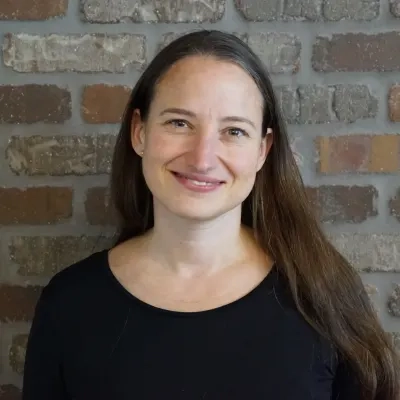
Yvonne-Anne Pignolet
DFINITY
Keynote title: Internet Computer Protocol: democratic evolution of a web3 platform
Abstract
Recent technological advances have enabled the efficient execution of decentralized web3 applications and smart contracts. The Internet Computer Protocol (ICP) is a fast and efficient decentralized blockchain-based system for the execution of general-purpose applications in the form of smart contracts. In particular, the ICP's execution, governance and evolution are controlled by different parties in a trustless and fault-tolerant manner instead of a central entity. In this talk, I will give an overview of the ICP, followed by a discussion of the challenges the IC faces to facilitate upgrading itself through voting by ICP token holders and present our approach to tackle them.
Biography
Yvonne-Anne Pignolet's work is centered around distributed systems, ranging from the design and analysis of algorithms for reliable and efficient distributed systems despite failures and malicious behaviour to complex network analysis. After her PhD at ETH Zurich in 2009 she was a postdoc at IBM Research Zurich and Ben Gurion University, Be'er Sheva. She worked for 8 years at ABB Corporate Research, Switzerland mostly devoted to research on communication systems for industrial and power systems, as a Principal Scientist in her final role. In 2019, she joined DFINITY, where she now leads teams of researchers building and improving the Internet Computer.
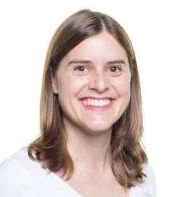
Tania Lorido-Botran
Roblox, USA
Keynote title: Metastability in the Metaverse
Abstract
Roblox Metaverse supports an impressive 55M daily users. The underlying infrastructure is geographically distributed, with multiple edge data centers in all continents. The Metaverse stack consists of multiple layers of software systems, with complex dependencies that can be represented as a DAG (Directed Acyclic Graph) or a multi-layered queueing system. In short, the concept of Metastability happens when each moving part of the stack works in harmony. In contrast, a Metastable failure results from a trigger originating in some part of the stack that cascades through multiple dependencies to finally affect a third-party system. Such kind of failure has large-scale consequences and can deem the overall stack unusable. The present talk will deep-dive in the characterization (or absence) of metastability based on a queueing theory model and analyze the dynamics that can lead to different flavors of system-wide failures. Furthermore, the model will be used as the basis to (mathematically) devise measures for the early detection of failures and explore fault-tolerance measures that ensure metastability.
Biography
Dr. Tania Lorido-Botran is a Research Scientist at Roblox where she leads several efforts at the intersection of ML and Systems. Prior to that, she worked at Microsoft and the Pacific Northwest National Laboratory. She was also a visiting PhD at Rice University. Dr. Lorido Botran received her PhD from the University of Deusto in Spain with a Cum Laude distinction. Her current research interests span across reinforcement learning, data center sustainability and fault-tolerance. She is also active in academia. She actively collaborates with universities and also serves as Program Committee member in several top-tier conferences, such as CCGRID or DISC.
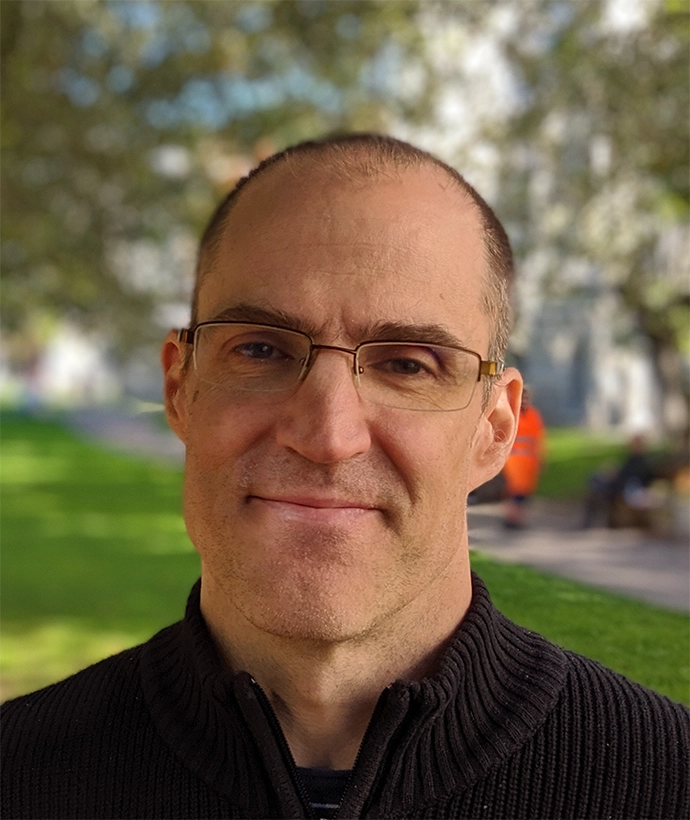
Patrick Eugster
Università della Svizzera Italiana (USI), Lugano, Switzerland
Keynote title: Secure distributed data and event processing at scale: where are we now?
Abstract
The continuously increasing availability of cloud and edge data center resources is driving our evolution to a data-driven society. Meanwhile, however, the innate sharing of third-party data center resources by users continues to fuel strong security concerns around data and computations handled in and across such infrastructures. While many basic solutions to enforce security have been proposed over the years, both in terms of software mechanisms (cryptographic primitives) and hardware mechanisms (trusted execution environments), they all come with their respective pros and cons. In this talk I will report and reflect on almost a decade of experience of working on the problem of confidentiality-preserving data and event processing. I will cover challenges in terms of guarantees, performance, transparency, or portability and interoperability, discuss tradeoffs therein, solutions, and, finally, open challenges.
Biography
Patrick is professor of computer science at the Università della Svizzera italiana (USI) in Lugano, Switzerland, where he leads the Software Systems (SWYSTEMS) research group. Prior to that Patrick was a regular faculty member at Purdue University (2005–2016) and TU Darmstadt (2014–2017), and a visiting professor at MIT (2012–2013). His research has been awarded by several public funding agencies (e.g., NSF, ERC, DARPA, SNSF) as well as corporate partners (e.g., Cisco, Facebook, Google, HP, IBM, Meta, NetApp, Northrop-Grumman, SAP) through respective programs. Patrick is interested in all aspects of dependable distributed systems, in particular the intersection with programming languages and networks. Patrick served as PC chair for ACM OOPSLA'15, returning as associate PC chair for ACM OOPSLA'23, and currently serves as associate editor for IEEE Transactions on Software Engineering. But before all that, Patrick started his academic path as an early contributor to event-based systems and DEBS, serving also as PC co-chair for DEBS'12, so he is particularly excited to return.
Important Dates
| Events | Dates (AoE) |
|---|---|
| Fall Cycle - Research Papers | |
| Abstract Submission | |
| Paper Submission | |
| Rebuttal Phase | |
| Acceptance Notification | |
| Camera Ready | |
| Spring Cycle - Research Papers | |
| Abstract Submission | |
| Paper Submission | |
| Rebuttal Phase | |
| Acceptance Notification | |
| Camera Ready | |
| Submission Dates | |
| Industry and Application Paper Submission | |
| Doctoral Symposium Submission | |
| Poster and Demo Paper Submission | |
| Notification Dates | |
| Author Notification Industry and Application Track | |
| Author Notification Doctoral Symposium | |
| Author Notification Poster & Demo | |
| Conference | |
| Camera Ready for All Tracks (except Poster & Demo) | |
| Camera Ready for Poster & Demo | |
| Conference | 27th–30th 2023 |